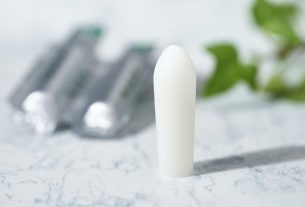Sinusitis medicines, such as paracetamol, ibuprofen, amoxicillin or budesonide, help relieve symptoms such as a blocked or runny nose, headache or a feeling of heaviness in the face when bending down. This is because these remedies act to reduce inflammation of the sinuses, facilitate the elimination of nasal secretion or help fight bacteria.
Sinusitis is an inflammation of the nasal sinuses, which can be caused by the influenza virus or by bacteria that develop inside the nasal sinuses, as happens after allergies.
Read too: Sinusitis: what it is, symptoms, causes and treatment
Medicines for sinusitis should be prescribed by your general practitioner or otorhinolaryngologist, according to the symptoms and severity of the disease. Furthermore, some home remedies for sinusitis, such as nebulization with eucalyptus, can complement the treatment recommended by your doctor and speed up recovery.
Pharmacy remedies
There are several types of medicines available at the pharmacy that can be prescribed by your doctor to treat sinusitis:
1. Saline solutions
People who suffer from sinusitis should perform nasal irrigation frequently, with the help of saline solutions, such as 0.9% sodium chloride or seawater saline solution, which help to wash the sinuses and reduce sinus symptoms. clogged or running, as well as eliminating irritants and allergens.
2. Budesonida
Budesonide, as well as mometasone and fluticasone, are corticosteroids in the form of a nasal spray, which help reduce swelling and inflammation of the nasal sinuses, and may be recommended by the doctor to relieve the symptoms of sinusitis, such as a blocked or runny nose, itchy nose or sneezing. Check out other remedies to unblock your nose.
3. Prednisone
Prednisone is a corticosteroid in the form of tablets, which helps to alleviate the symptoms of severe sinusitis, as it helps to reduce swelling of the nasal sinuses and reduce inflammation.
Another corticosteroid that has a similar action that may be recommended by your doctor is prednisolone. Learn how to use prednisone and prednisolone.
4. Oxymetazoline
Oxymetazoline, as well as naphazoline hydrochloride, are decongestants in the form of a nasal spray, indicated to relieve the symptoms of a blocked or runny nose.
However, care must be taken with the use of these products, because excessive use can cause a rebound effect, which occurs when the body realizes that there has been a decrease in the amount of nasal secretion, and starts to produce more, worsening the symptom of stuffy nose.
Another way to use decongestants is in the form of tablets, such as Tylenol sinus or Sinutab, which in addition to reducing the feeling of a blocked and runny nose, have an analgesic effect and are also effective in relieving pain.
Read too: Rebound effect: what it is, symptoms, causes (and what to do)
5. Amoxicillin
Amoxicillin is an antibiotic that may be recommended by the doctor in the case of sinusitis caused by the development of bacteria in nasal secretions, as this medicine works by preventing the growth and eliminating bacteria.
Generally, sinusitis treatment with antibiotics lasts around 7 to 10 days and should always be advised by a doctor.
Read too: Antibiotics for sinusitis: when to use, how to take and side effects
6. Paracetamol
Paracetamol is an analgesic and antipyretic that can be used to reduce headaches caused by sinusitis, as well as helping to reduce the fever that can occur in the case of bacterial sinusitis. See other symptoms of bacterial sinusitis.
7. Ibuprofen
Ibuprofen is a non-steroidal anti-inflammatory that helps reduce swelling and inflammation of the sinuses, as well as relieving headaches caused by sinusitis.
Additionally, this remedy helps relieve a sore throat, which is a common symptom associated with sinusitis, due to its proximity to the sinuses. Learn how to take ibuprofen correctly.
8. Loratadine
Loratadine is an antiallergic drug indicated in cases of allergic sinusitis, as it helps reduce the production of histamine in the body, which is produced when a person comes into contact with allergenic substances, such as pollen, mold or dust mites, for example.
Other antiallergic drugs that may be recommended by your doctor are cetirizine, desloratadine or bilastine, for example.
Remedies for children’s sinusitis
Medicines for children’s sinusitis can be very similar to those taken by adults and must be prescribed by a pediatrician, according to the child’s symptoms, age and weight.
Furthermore, a good solution to do at home is to wash your nose with saline or saline solution, to facilitate the elimination of secretions from the nasal sinuses. Learn how to make a saline solution for sinusitis at home.
Remedies for sinusitis during pregnancy
The use of medicines for sinusitis, such as antibiotics or corticosteroids, is not recommended in pregnant women and should only be done if indicated by the obstetrician, as they can harm the baby’s development and the mother’s safety.
Paracetamol is a medicine that can be taken safely to relieve pain caused by sinusitis, but it is important that it is also taken under the guidance of a doctor. Furthermore, pregnant women can naturally treat sinusitis by washing their nostrils with serum, inhaling hot water vapor or drinking tea, for example.
Read too: Sinusitis during pregnancy: symptoms, causes and how to treat
Home remedy options
A great home remedy for sinusitis is to do 2 to 3 nebulizations of about 20 minutes a day with a device, using herbs such as loofah or eucalyptus, for example. A good alternative is to breathe in the steam while taking a shower.
Learn how to prepare home remedies for sinusitis:
In addition, there are some measures that can be done at home to improve the symptoms of sinusitis, such as resting whenever possible, drinking plenty of fluids as it helps thin mucus, placing warm compresses on the nasal cavities and sleeping with the head slightly elevated. .
Read too: 8 home remedies for sinusitis: teas and other options
Homeopathic remedies
Homeopathic remedies are also an option to treat sinusitis or to be used as a complement to your treatment with medications prescribed by your doctor. Some examples are Almeida Prado nº3 or Sinumed, from the same laboratory, however, they should only be used under the guidance of a doctor or homeopath.

Sign up for our newsletter and stay up to date with exclusive news
that can transform your routine!
Warning: Undefined array key "title" in /home/storelat/public_html/wp-content/plugins/link-whisper-premium/templates/frontend/related-posts.php on line 12
Warning: Undefined array key "title_tag" in /home/storelat/public_html/wp-content/plugins/link-whisper-premium/templates/frontend/related-posts.php on line 13




